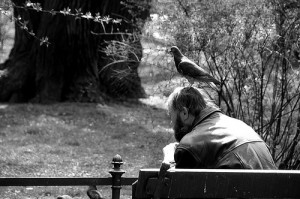Justice by Any Other Name
Posted on by Townsend MyersThe lost Manichean religion codified the idea that life is a battle between the forces of ultimate good and ultimate evil. A mere 2,500 years later we’ve begun to realize there’s some nuance involved in this conflict. We’ve begun to realize there’s a difference between troubled and criminal.
Recently I blogged about strategies being used by several states and municipalities intended to make their court systems more efficient and cost effective. Keeping in mind that the state pays on average about $30,000 per prisoner, any program that can keep the public safe and the cost of prisons down should naturally be welcomed. Well, last month the City of New Orleans used $100,000 in federal grant money to revive the nearly decade old New Orleans mental health court program. The program provides services to mentally ill, nonviolent probationers who need help rather than jail.
We’re not talking about a free pass. Those in the program have to meet requirements to remain eligible. Constant visits by probation officers; weekly meetings with caseworkers; random drug tests; clinic visits. It’s not a free pass. It’s an honest attempt at rehabilitation, something that is much more cost efficient and compassionate than the model currently used by most of the country.
Having depression, schizophrenia, psychosis or bipolar disorder isn’t criminal, but missing a court date or a probation meeting is. The clients of the mental health court struggle with everyday life and usually compound those problems with drug or alcohol addictions. The drugs and alcohol are a symptom of a larger problem and New Orleans has decided not to use these symptoms as an excuse to wash these troubled people out of society.
Rather than put them in overcrowded jails, the mental health court provides them with “wraparound” resources that include housing, transportation, health care, treatment and counseling. The municipal courts allow flexibility for such “lapses” as missed appointments or failed drug tests. The idea is to punish them for their actual crimes without punishing them for being mentally ill.
This program in now being provided in at least 13 parishes as well as hundreds of courts across the country. Whether it came about due to fiscal responsibility or a maturing society doesn’t matter…. What does is that we’re learning not to punish people that need help. 2,500 years is a long time to learn the difference between good and evil.












